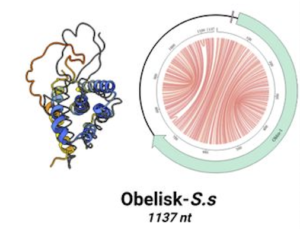A few shmears of omega-3 fortified margarine per day can reduce the risk of cardiac arrest and sudden death in older people with type 2 diabetes, according to new data from the Alpha Omega Trial.
Dr. Daan Kromhout and colleagues, of the Division of Human Nutrition, Wageningen University, Holland, randomized 1,014 diabetic patients aged 60 to 80 years to one of four groups, each of which was given recommendations to use a specific margarine: one margarine provided 400 mg EPA & DHA per day; the second provided 2g alpha-linolenic acid (ALA) per day; the third gave a combination of EPA, DHA and ALA; the fourth was an unsupplemented “placebo” margarine.
All patients had myocardial infarctions MI within the past 10 years. They were instructed to eat the assigned margarines daily, for a total of 40 months.
On average, patients consumed 18.6 g margarine daily, resulting in mean doses of 223 mg EPA, 149 mg DHA and 1.9 g ALA per day. During the follow-up period, 29 patients developed ventricular arrhythmias and 27 died of MI.
The investigators found that any combination of the omega-3 fatty acids decreased ventricular arrhythmia-related events compared with placebo. However, patients assigned EPA/DHA/ALA margarine experienced the lowest incidence; in this group deadly ventricular arrhythmias were redued by 84% vs. placebo (HR=0.16; 95% CI, 0.04-0.69). Results were similar for the combined endpoint of cardiac arrest and sudden death (HR=0.13; 95% CI, 0.02-1.09) and placement of cardioverter defibrillators (HR=0.19; 95% CI, 0.02-1.55).
Although there was no significant reductions in fatal MI among the treatment groups, after adjustment for potential confounders, Dr. Kromhout found that the EPA/DHA/ALA margarine reduced the combined endpoint of ventricular arrhythmia-related events and fatal MI by 72% (HR=0.28; 95% CI, 0.11-0.71).
The study was just published in the American Diabetes Association’s journal Diabetes Care. It was sponsored by an unrestricted grant from Unilever, maker of the “I Can’t Believe It’s Not Butter” and “Flora” brands of omega-3 fortified margarines.
“This is the first study that showed a significant protective effect of omega-3 fatty acids in high-risk patients with diabetes who were on state-of-the-art drug treatment for their heart attack,” said Dr. Kromhout.
These new findings balance out some not-so-good findings published by Dr. Kromhout and his group last year, showing that omega-3 margarines did not reduce incidence of second MI or CV events in a cohort of nearly 5,000 elderly patients who’d already had first MIs.
A major flaw in that earlier study was that the maximum EPA-DHA dose delivered by the margarines in question was only 400 mg per day, roughly half the amount recommended by the American Heart Association.







